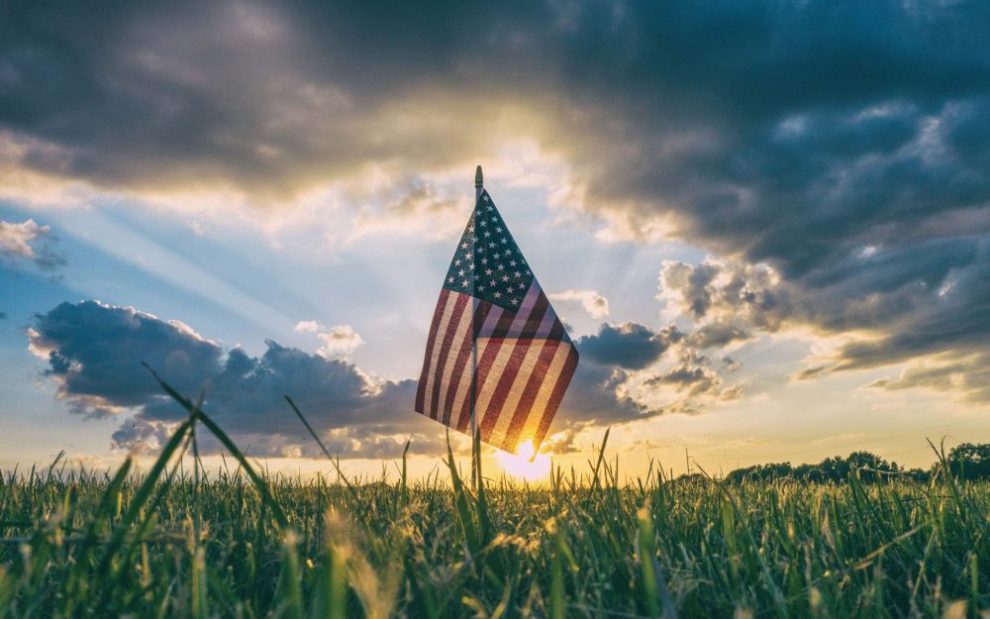We live in the land of the free. And thank God for it. Yet as we celebrate our nation’s independence once more with generous pyrotechnics and prodigious flag waving, we might consider what the nature of genuine freedom is and ought to be. Can freedom in fact be a trap, at least in the way it’s popularly championed? Does our national obsession with personal freedom serve, perhaps, to make us less liberated than we think?
Moral theologians and philosophers will argue the comparative merits of freedom from obstacles or oppressors versus freedom for some new state of being. In contemplating our freedom, most of us are quick to list the various perceived burdens we seek to put behind us—the “freedom from” category. Historically, it was England and monarchy—not to mention the sticky issue of unwelcome taxes—that our white colonists wished to escape. Meanwhile, the enslaved Black population on these shores sought a much different sort of freedom: from degradation and abuse and for autonomy of destiny. And if you had asked Native Americans of that same era about liberty, it would most certainly have been freedom from dealing with the intruders from across the ocean.
We like to think that’s all ancient history. It is and it isn’t. We’re together here now in the land of the free. Still, we continue to struggle to make “liberty and justice for all” tangible and real in a way it has yet to be. In our century of increasing individuality, diversity, and division, with a sense of isolation only deepened by the pandemic years, many are frustrated with the obstacles to freedom barricading their way. The prosperous still seek liberty from unloved government, regulation, and taxes; in that tier of existence, not much has changed. The poor hope to be free from want: to have enough resources to feed and educate their children and keep a roof over their heads. The ever shrinking middle class sees oppressors on all sides: rich and poor alike seemingly squeezing the middle’s prospects in the direction of insufficiency. In many respects, it appears what we’d like most is to be free of one another.
This is a danger. The drive to independence from society itself is a ruthless wish. It cannot be the American dream. It’s an illusion that will only lead to a nightmare. To take a system apart and to replace it with no binding center at all is a movement in the direction of chaos. If the first chapter of Genesis is to be credited, chaos is the condition our Creator originally liberates the whole of reality from. Ordering primordial chaos into distinct diversities, then binding the diversities together into interdependent unity, is what makes life possible and “good,” as we understand from the creation story. Day follows night, land becomes fertile with water, and man finds a suitable collaborator with woman. We dismantle the harmonics of this interdependence at our peril.
Pope Francis points to the “culture of the ephemeral” in diagnosing the social ill of too much attachment to personal liberty. In our delirious quest to be free from every obstacle posed by the reality of other people, we treat others as ends to our individual purposes. We become consumers of one another. We view our relationships as remedies to loneliness, sources of protection, and providers of services. As the pope says in the 2016 apostolic exhortation Amoris Laetitia (On Love in the Family), “We treat affective relationships the way we treat material objects and the environment: everything is disposable; everyone uses and throws away, takes and breaks, exploits and squeezes to the last drop. Then, goodbye.”
That such an attitude contributes to the breakup of marriages and families goes without saying. But beyond that, it leads to the rejection of potential marriages and families. Many families are never attempted because conditional partnerships of individuals seeking a personal good inevitably come to an end. Either the good will be achieved, or its achievement proves unattainable. In either case, as the pope succinctly says, “goodbye.” When the harmony of the common good is abandoned as irrelevant, one discarded by-product turns out to be the future.
Christianity is incompatible with the obsession for personal liberty and personal ends. The classic parable of the Good Samaritan is an antidote to such self-absorption. The tale concerns a traveler moving through territory in which he is unwelcome. What business this Samaritan has on the road between Jerusalem and Jericho is unknown. What’s certain is that the fate of the suffering Jew he encounters on the way is not part of the traveler’s purpose. If anything, the victim left for dead by robbers is an obstacle to the Samaritan’s personal pursuits.
If he were a 21st-century citizen, the Samaritan might briefly note the half-dead man in passing. To stop would impede the traveler’s purpose. To help would cost him time and money. He might even be disparaged for who he is: a Samaritan, whose very existence in the land is resisted by the victim in the ditch. A priest and a Levite passed this way earlier. Each made choices in favor of personal freedom. They avoided a fellow Jew and his burdensome, resource-consuming need. They had places to go and things to do. This man wasn’t on their list of obligations to fulfill, so they didn’t pause in the exercise of their liberty to get involved.
Nor is this sufferer on the Samaritan’s list. Yet he stops. What stops him is compassion, an emotion that speaks to the binding power of interdependence. This suffering Jew has a need. More specifically, he needs the Samaritan’s help. Why the traveler experiences a stranger’s need as a personal call is a mystery—unless we recognize interdependence and the common good as part of what makes us human.
The Samaritan doesn’t stop for a Jew. He stops for a fellow creature in need. It does indeed cost him time, effort, and money. He invests oil, wine, and bandages. He bloodies himself and his animal in the process of moving the injured man. He loses even more time, staying overnight with the man in an inn to tend to his wounds. Then he picks up the tab for the whole episode.
The scholar of the law, hearing this story from the lips of Jesus, is honor bound to define the despised Samaritan as a neighbor. We might call the Samaritan a saint, since, in modern, freedom-worshipping terms, to go to such trouble for a stranger and an enemy is unthinkable.
The Samaritan surrenders a certain amount of his liberty in service to the robbers’ victim. Technically he was free from any such obligation. Getting involved might even have endangered him if the robbers still lurked nearby. The Samaritan shows no interest in being free from the responsibility he instinctively embraces. He’s free from the legacy of hate, free from fear of personal harm, free from concern about what this decision will cost.
This traveler seeks a freedom for some higher good. He is free to show compassion, free to claim interdependence with a man who might not return the favor under normal conditions. The Samaritan has an authentic liberty. He’s free to be fully human.
Making an idol of personal freedom imprisons us in a world of one. It requires that we withhold ourselves from fundamental goods like community and communion. Let’s not make the lonely choice for “goodbye.” Let’s say to every fellow traveler on this planet: “Hello, neighbor!”
This article also appears in the July 2022 issue of U.S. Catholic (Vol. 87, No. 7, pages 47-49). Click here to subscribe to the magazine.
Image: Unsplash/Aaron Burden














Add comment